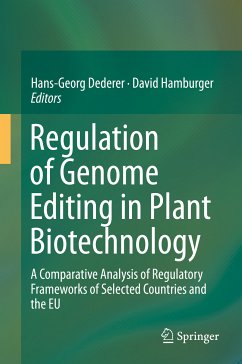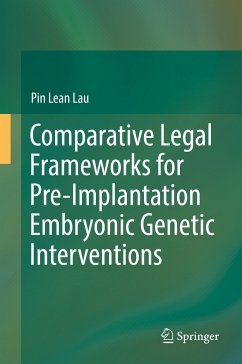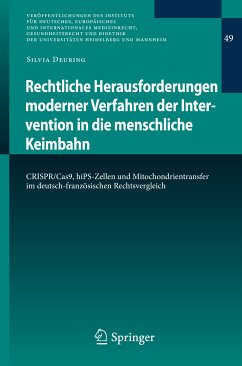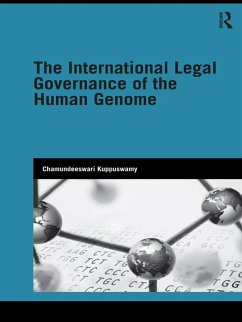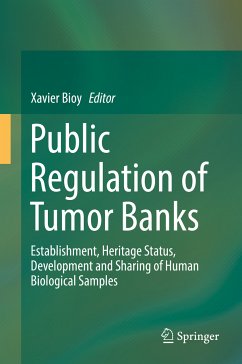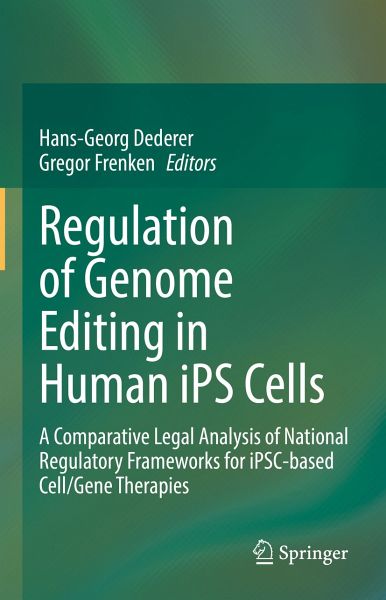
Regulation of Genome Editing in Human iPS Cells (eBook, PDF)
A Comparative Legal Analysis of National Regulatory Frameworks for iPSC-based Cell/Gene Therapies
Redaktion: Dederer, Hans-Georg; Frenken, Gregor
Versandkostenfrei!
Sofort per Download lieferbar
120,95 €
inkl. MwSt.
Weitere Ausgaben:

PAYBACK Punkte
60 °P sammeln!
The book provides a concise overview of currently applicable regulatory frameworks of states which are among the world leaders in research and development (R&D) of cell and gene therapies. Developments in genome editing are expected to lead to new possibilities for the treatment of hereditary diseases in humans. The treatment of such often severe but hitherto uncurable diseases can be based on genome-edited induced pluripotent stem cells (iPS cells). Such treatments constitute combined cell/gene therapies. These therapies need to be governed by a regulatory framework which ensures quality, saf...
The book provides a concise overview of currently applicable regulatory frameworks of states which are among the world leaders in research and development (R&D) of cell and gene therapies. Developments in genome editing are expected to lead to new possibilities for the treatment of hereditary diseases in humans. The treatment of such often severe but hitherto uncurable diseases can be based on genome-edited induced pluripotent stem cells (iPS cells). Such treatments constitute combined cell/gene therapies. These therapies need to be governed by a regulatory framework which ensures quality, safety, and efficacy of the relevant therapeutic products. On the other hand, such regulations may retard product approval and impede R&D. Accordingly, national regulations for therapies based on genome-edited iPS cells are an important and, as the case may be, decisive factor for both researchers and industry regarding their decision where to locate their R&D activities. Therefore, regulatory frameworks impact significantly on the competitiveness of states and their economies. This is why a comparative analysis of laws and regulations of different countries matters. Such a comparative legal analysis provides an important insight into regulatory concepts which, in turn, may inspire adjustments of, or amendments to, domestic legal regimes. For this purpose, experts present country reports on France, Germany, Japan, South Korea, Switzerland, and the USA. The reports on France and Germany also refer to the parameters and implications arising from pertinent EU law. This contributed volume is aimed at researchers, but also at, e.g., legal scholars, lawmakers, regulators, and political decision makers.
Dieser Download kann aus rechtlichen Gründen nur mit Rechnungsadresse in A, B, BG, CY, CZ, D, DK, EW, E, FIN, F, GR, HR, H, IRL, I, LT, L, LR, M, NL, PL, P, R, S, SLO, SK ausgeliefert werden.




